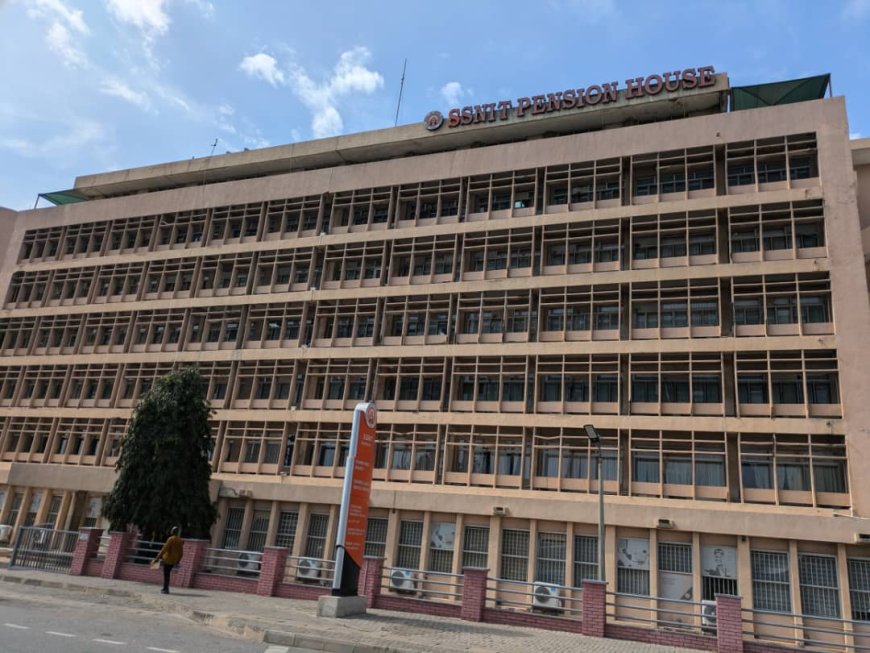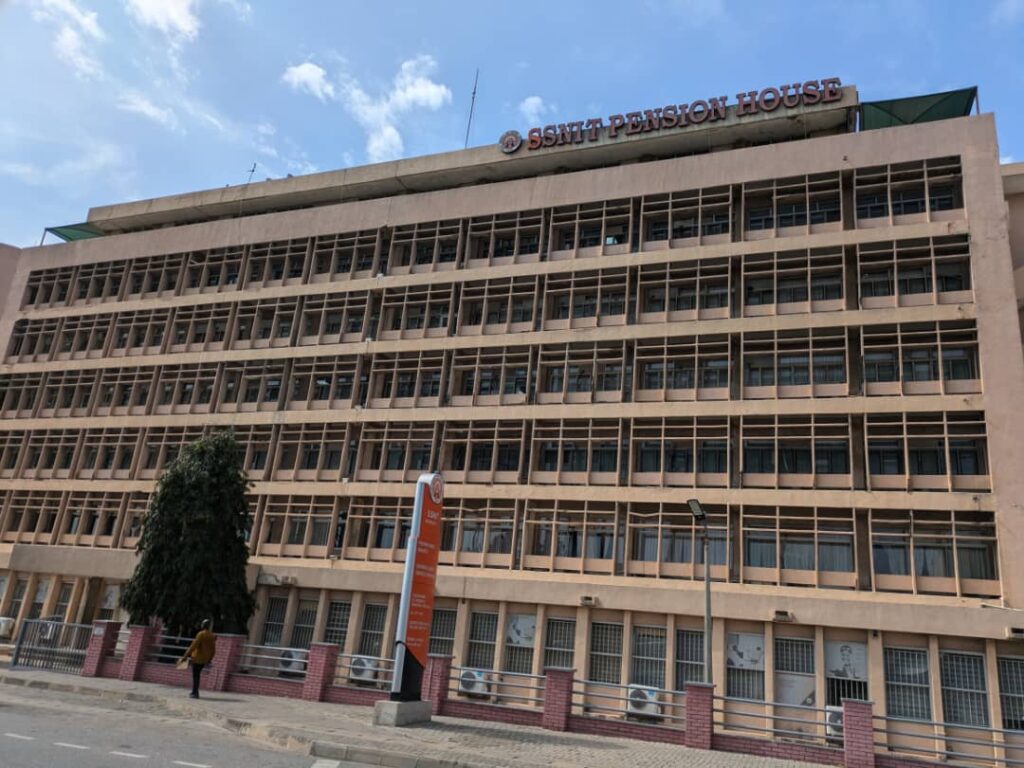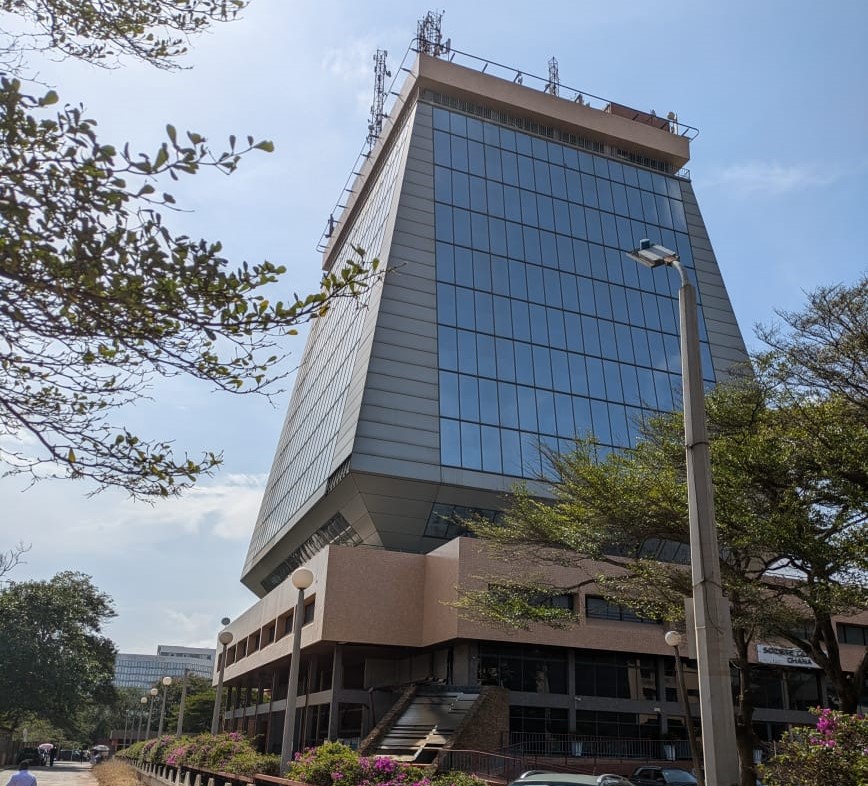SSNIT’s multi-billion-dollar real estate empire crumbles
The Social Security and National Insurance Trust (SSNIT), Ghana's largest pension fund, is facing a crisis of unprecedented scale as its multi-billion-dollar real estate investments falter, threatening the financial security of millions of Ghanaian workers and retirees. The post SSNIT’s multi-billion-dollar real estate empire crumbles appeared first on Ghana Business News.



The Social Security and National Insurance Trust (SSNIT), Ghana’s largest pension fund, is facing a crisis of unprecedented scale as its multi-billion-dollar real estate investments falter, threatening the financial security of millions of Ghanaian workers and retirees.
Our investigation has uncovered a troubling pattern of mismanagement, overvaluation, and market miscalculations in SSNIT’s property portfolio, and in response to a Right to Information request, SSNIT gave us the figures detailed in this story.
The scale of SSNIT’s real estate investments is staggering. Commercial properties valued at over GH¢1 billion, residential projects exceeding GH¢500 million, and land banks estimated at GH¢300 million form the backbone of a portfolio that spans the length and breadth of Ghana. However, these impressive figures mask a grim reality of low occupancy rates, mounting maintenance issues, and poor returns on investment.
At the heart of SSNIT’s real estate woes stands the World Trade Centre building in Accra. Completed in 2015 at a cost of GH¢183 million, this 14-story edifice was meant to be the crown jewel in SSNIT’s portfolio. Instead, it has become a monument to mismanagement. With occupancy rates hovering around 65% for years and a central air conditioning system that has been non-functional for over seven years, the building epitomizes the Trust’s failure to effectively manage its properties.
Kofi Mensah, a former tenant who moved his business out of the World Trade Centre last year, didn’t mince words: “It’s embarrassing. You’re paying premium rates for what’s supposed to be a world-class office space, but you’re sweating in your suit because the AC doesn’t work. It’s no way to run a business.”

SSNIT’s makeshift measure of installing individual split units in offices has been widely criticized. Dr. Ama Sarpong, an expert in facility management, notes, “This is a short-term fix for a long-term problem. It speaks to a lack of proactive maintenance and a failure to understand the complexities of managing high-rise commercial properties.”
The story of Premier Towers, another SSNIT property, mirrors that of the World Trade Centre but with an added layer of historical irony. Once considered the standard for a modern office space in Accra, this 12-story building has seen its fortunes wane dramatically. Occupancy rates have dropped below 50%, outdated systems plague the building, and several major tenants have departed, citing poor maintenance and high operating costs.
Joseph Quaye, a long-time real estate agent, reminisces, “Premier Towers used to be the address for any serious business in Accra. Now, it’s a cautionary tale. SSNIT has allowed a prime asset to deteriorate to the point where it’s becoming a liability.”
SSNIT’s venture into residential real estate paints an equally troubling picture. Issues have been raised about the prices of SSNIT’s affordable housing apartments which stand at GH¢99,000 – GH¢142,500 for a one-bedroom apartment. A two-bedroom apartment goes for GH¢182,500 and GH¢335,000 for a three-bedroom apartment. This was disclosed by the Deputy Minister for Works and Housing during an interview. Housing advocate Akua Mensa questions, “Who exactly is SSNIT building these homes for? Certainly not the teachers, nurses, and civil servants whose pensions they’re meant to be securing.”
The Borteyman project is made up of 744 single-rooms and 792 two-bedroom apartments. Road and drain construction, water and electricity supply, as well as a central sewage system and a market, forms part of this project.

The Trust F-Line Housing Project in Sakumono and the Eden Heights development in Weija further illustrate SSNIT’s disconnect from market realities. With prices starting at $131,000 and $115,000 respectively, the vast majority of Ghanaians cannot buy these properties with median annual income hovering around $2,200.
Perhaps the most egregious example of SSNIT’s market misreading is the Eden Heights project. With only 198 units sold out of 772 apartments, and prices ranging from $115,000 to $490,000, this luxury development represents the Trust’s misguided strategy. Dr. Kwame Osei, an economist at the University of Ghana, doesn’t hold back in his assessment: “Eden Heights epitomizes everything that’s wrong with SSNIT’s real estate strategy. They’ve invested hundreds of millions in a luxury development that caters to a tiny fraction of the population, while millions of Ghanaians struggle to find affordable housing. It’s a complete betrayal of SSNIT’s mandate.”
Perhaps the most glaring example of SSNIT’s disconnect from market realities is the Eden Heights development in Weija. Phase one consists of 608 apartments, while phase two adds another 640, with prices ranging from $115,000 for a one-bedroom unit to $499,000 for a luxury penthouse. Despite these offerings, the project has only sold 198 units, resulting in a disappointing occupancy rate of 25.6%. Considering Ghana’s median annual income hovers around $2,200, these properties are not merely out of reach; they are in a completely different financial realm.
Another notable case is the Adinkra Heights project near the 37 Military Hospital, which features 77 apartments, including two-bedroom, three-bedroom, four-bedroom, and penthouse options. Prices for the three-bedroom units start at $421,475 and can go up to $858,590, depending on the floor size. To date, $33 million has already been invested in this project.

The human cost of SSNIT’s real estate gamble is significant. With over 1.6 million active contributors and approximately 230,000 pensioners relying on SSNIT payments, the Trust’s investment failures put the financial security of millions at risk. The average monthly pension of GH¢1,100 (about $190) is already stretched thin for many retirees.
Grace Adjei, a retired teacher, voices the concerns of many: “I’ve worked as a teacher for 35 years, faithfully contributing to SSNIT every month. Now I hear that the money meant for my pension is tied up in empty luxury apartments. How am I supposed to live?”
The ripple effects of SSNIT’s real estate failures extend far beyond pensioners. The Trust’s significant role in Ghana’s economy means that its struggles could have broader implications, potentially cooling investment in the real estate sector, reducing confidence in public institutions, and possibly necessitating government intervention, which would strain an already tight national budget.
Faced with mounting criticism, SSNIT has announced a series of measures aimed at addressing the issues in its real estate portfolio. These include rent reductions, enhanced maintenance efforts, increased marketing for vacant properties, refurbishment plans for buildings like Premier Towers, and flexible payment options for residential developments.
However, these measures have been met with skepticism from industry experts and the public alike. Nana Ama Boakye, a real estate consultant, notes, “These are basic strategies that should have been in place from the beginning. The fact that SSNIT is only now implementing these measures shows how far behind they’ve fallen in terms of property management best practices.”
As SSNIT grapples with its real estate crisis, various stakeholders have put forth proposals for reform. These include calls for an overhaul of the Trust’s investment strategy, enhanced oversight through regular independent audits, leadership changes, a refocus on affordable housing, and exploration of public-private partnerships to more effectively manage and develop properties.
The stakes could not be higher. As Ghana’s population continues to grow and urbanize, the need for both commercial space and affordable housing is more pressing than ever. SSNIT’s ability to navigate this crisis and refocus on its core mission will have profound implications for millions of Ghanaian workers and the country’s broader economic landscape.
As this story continues to unfold, all eyes are on SSNIT. The Trust’s response to this crisis will shape the future of social security in Ghana for years to come. Will SSNIT be able to learn from its mistakes and chart a new course? Or will its real estate empire continue to crumble, jeopardizing the dreams and financial security of an entire generation? The answers to these questions will determine whether SSNIT can regain the trust of the Ghanaian people and fulfill its crucial role in securing the nation’s economic future.
By Innocent Samuel Appiah
Copyright ©2024 by NewsBridge Africa
All rights reserved. This article or any portion thereof may not be reproduced or used in any manner whatsoever without the express written permission of the publisher except for the use of brief quotations in reviews.
The post SSNIT’s multi-billion-dollar real estate empire crumbles appeared first on Ghana Business News.

















































